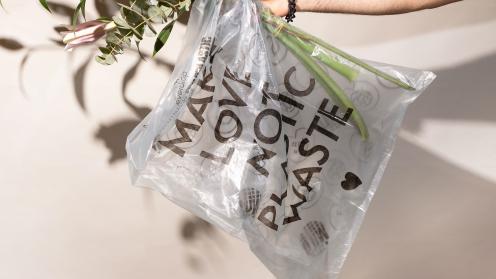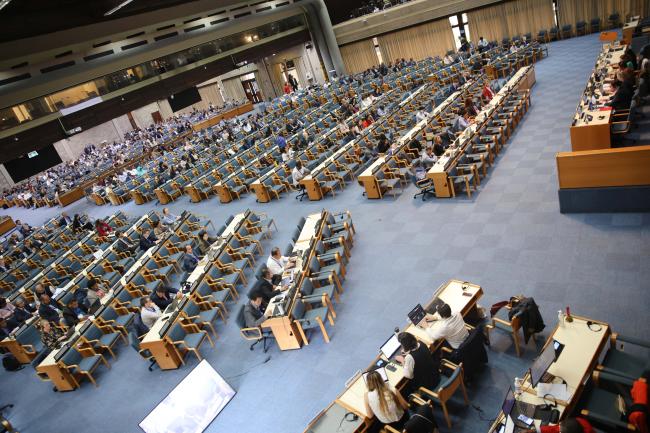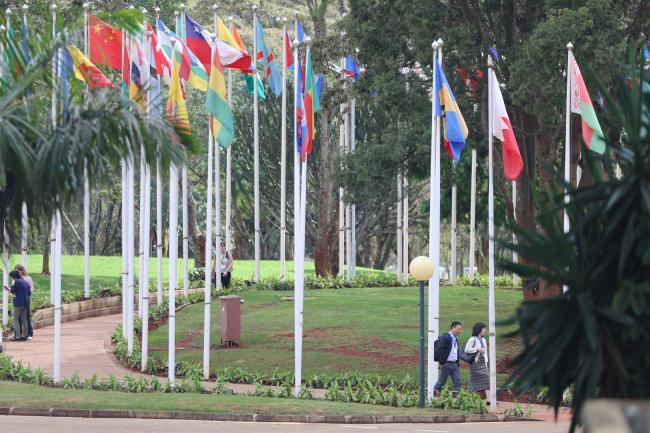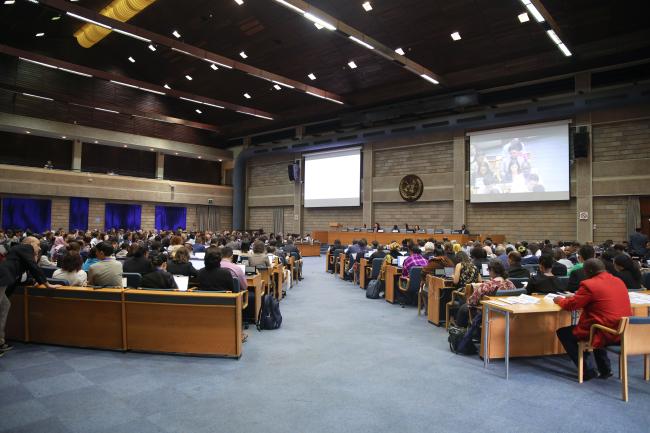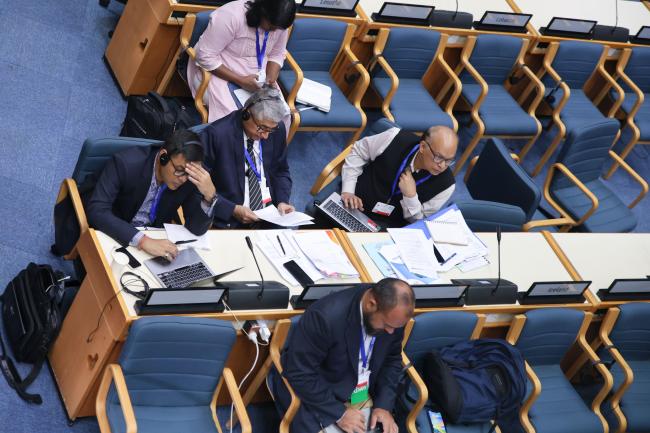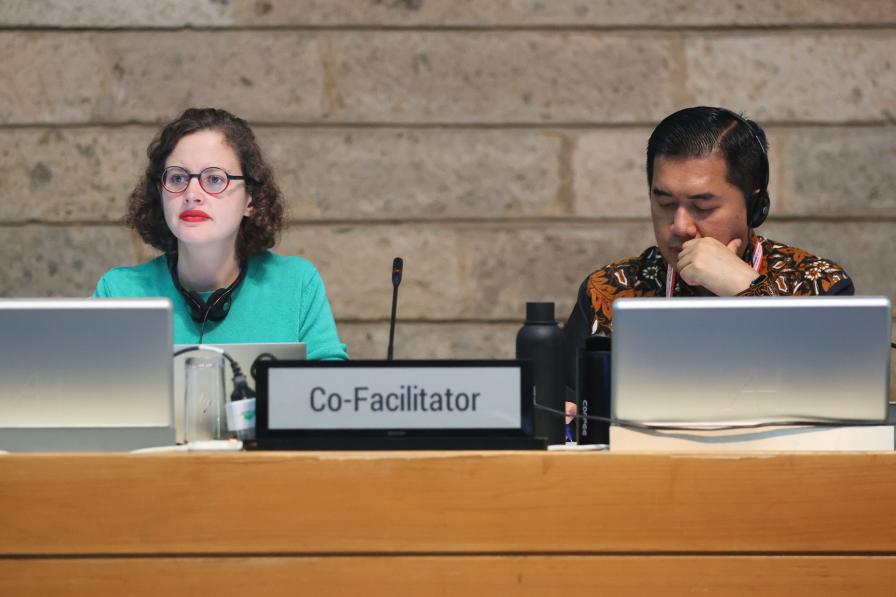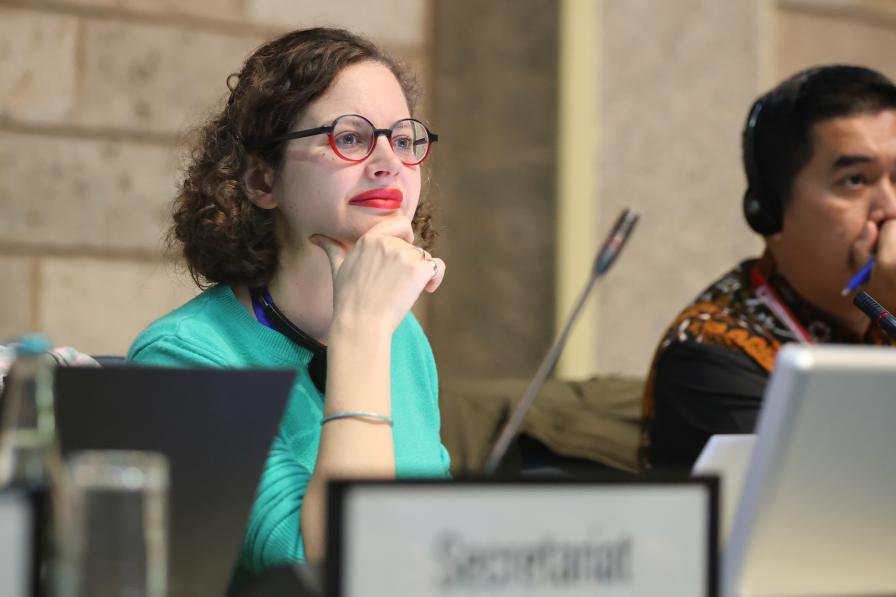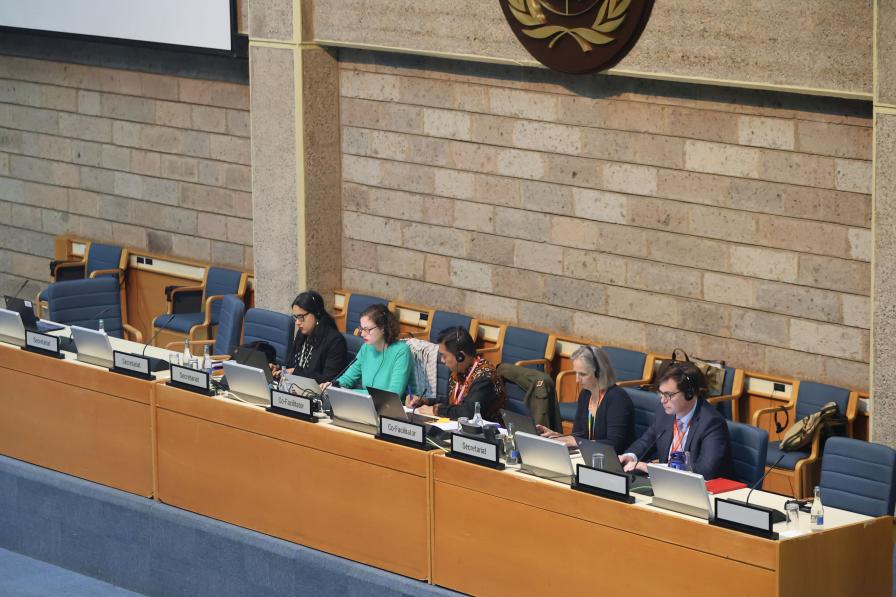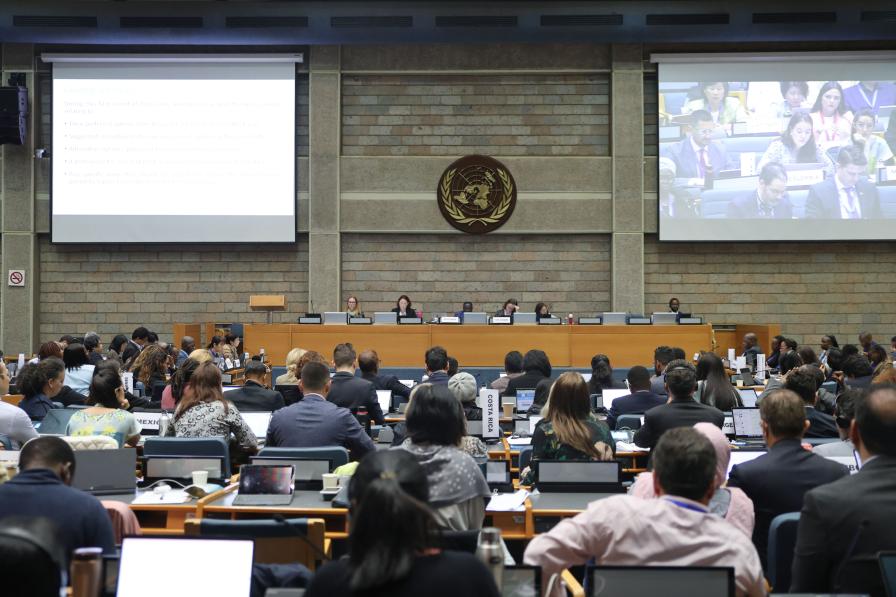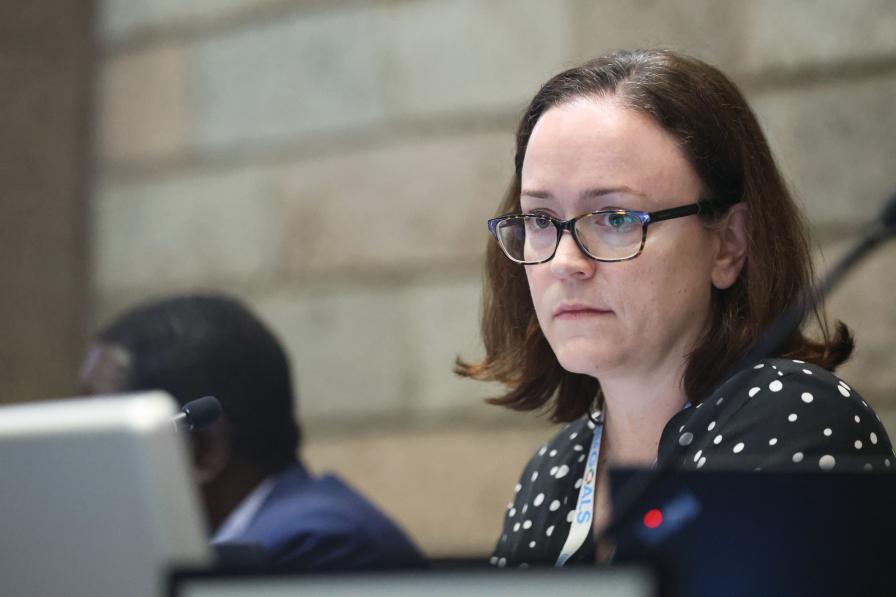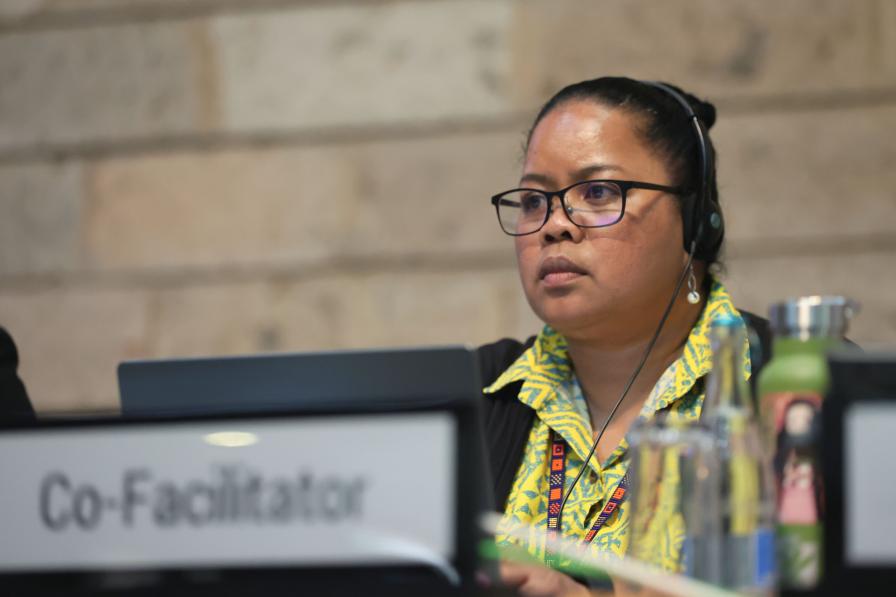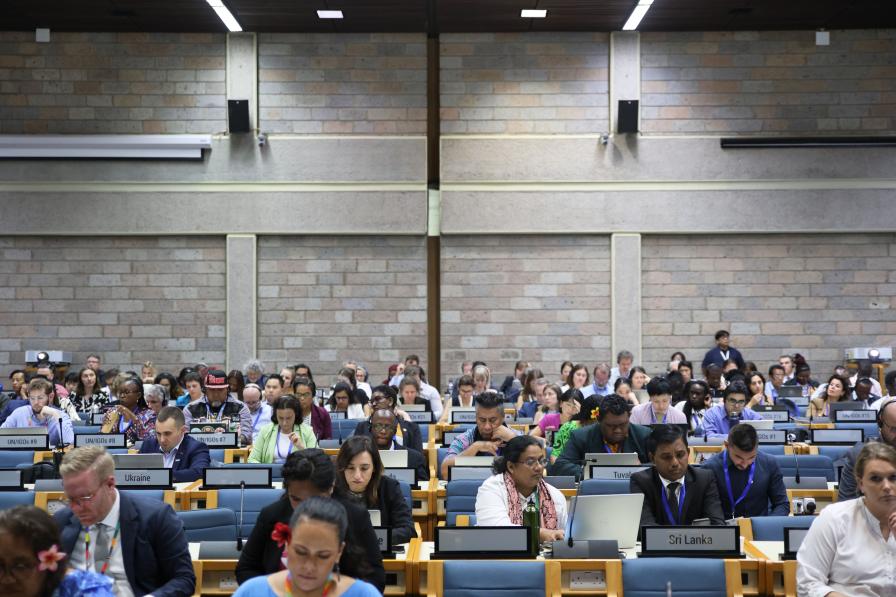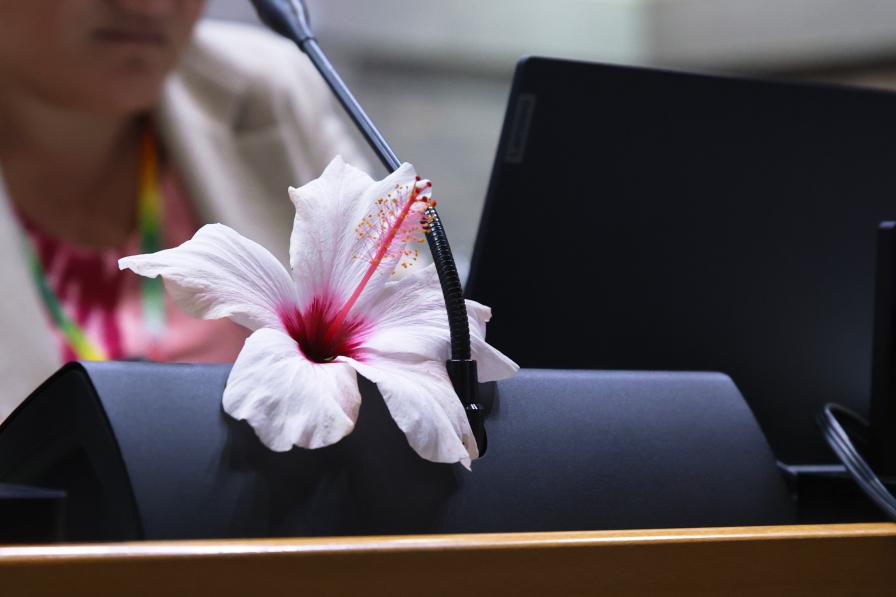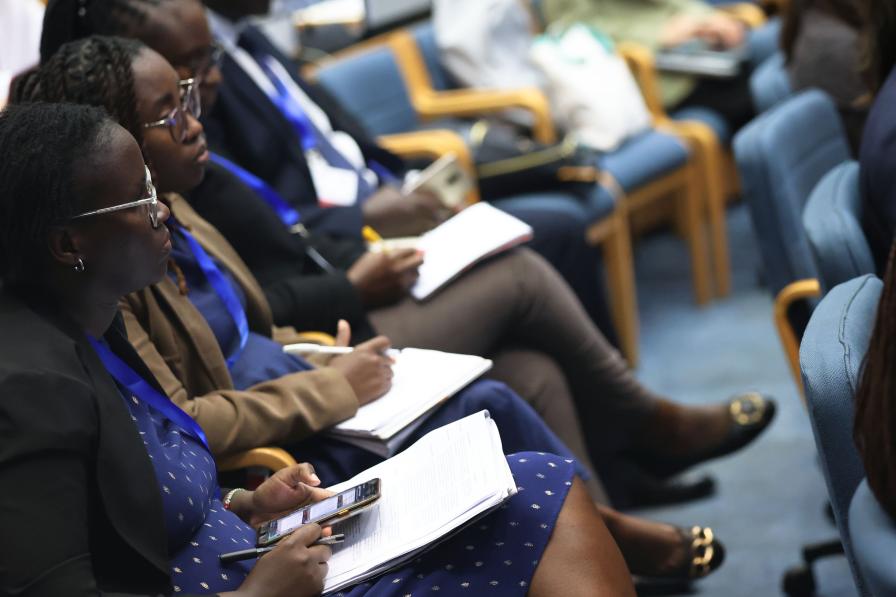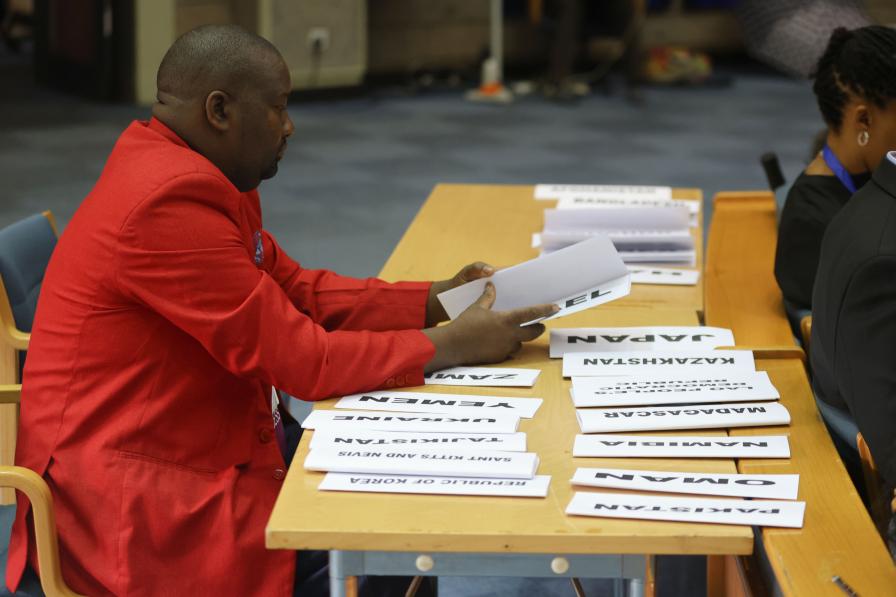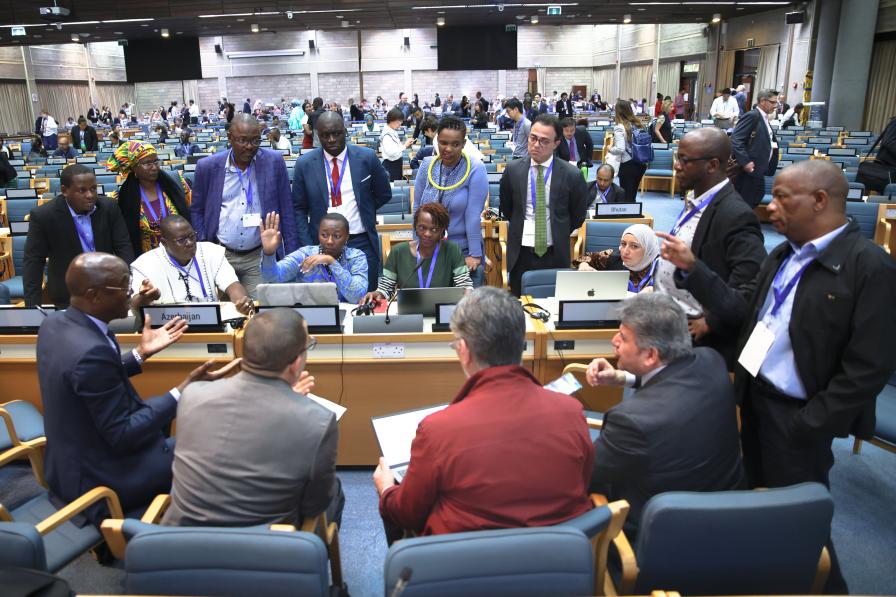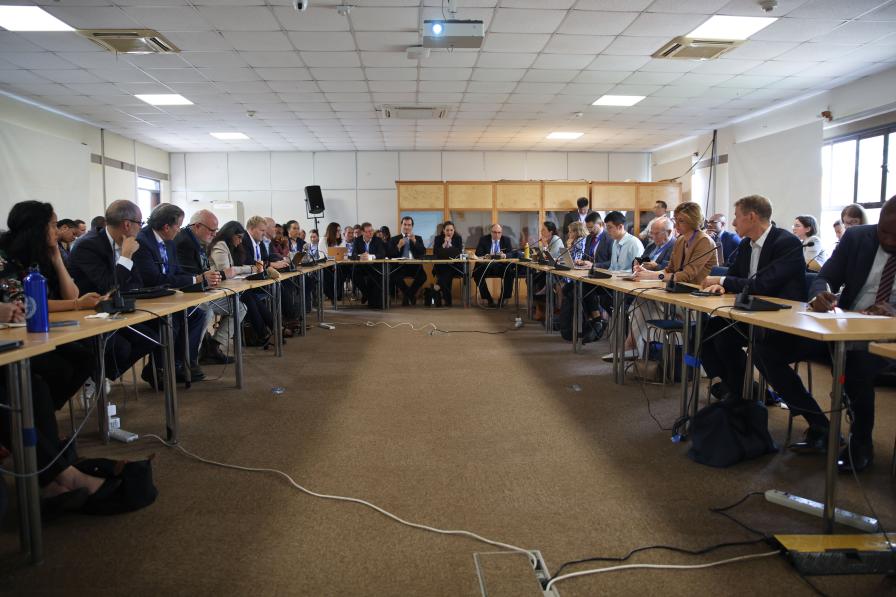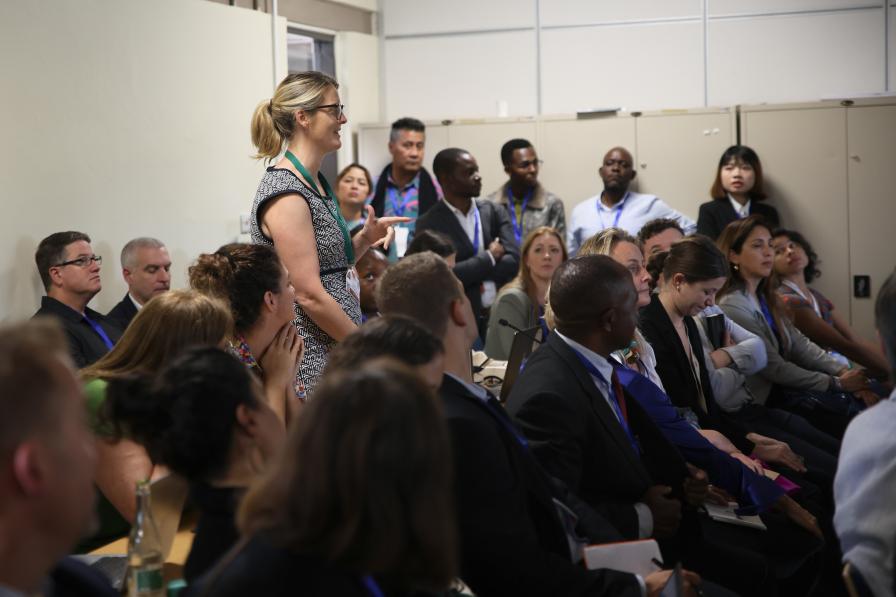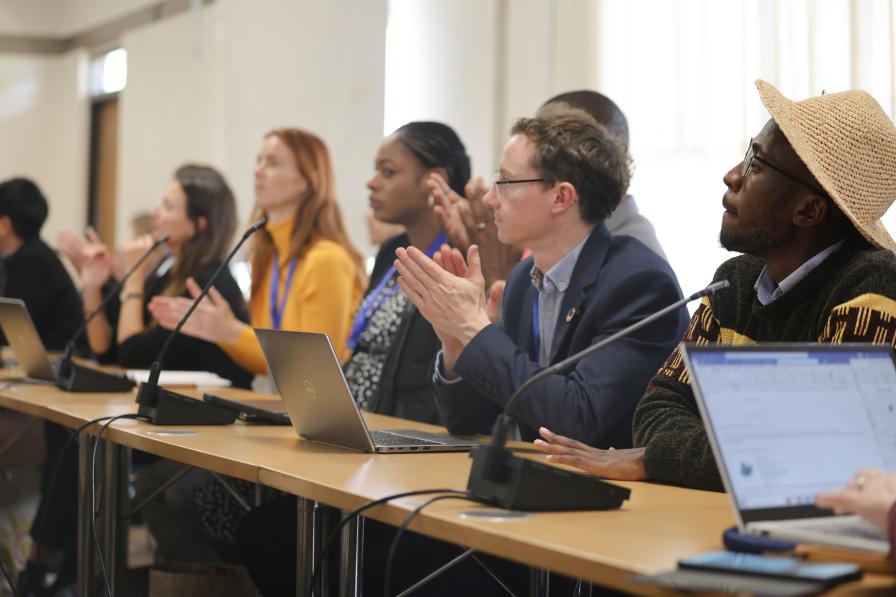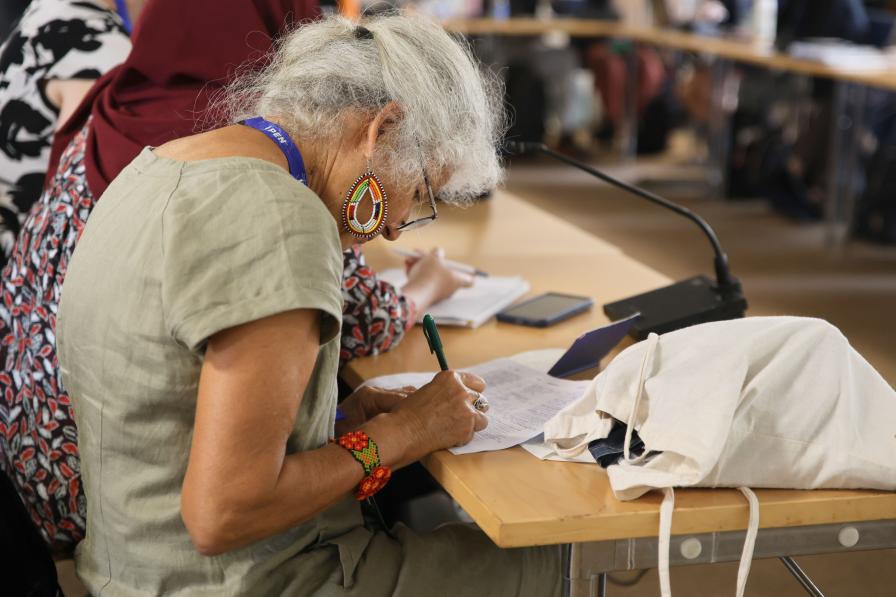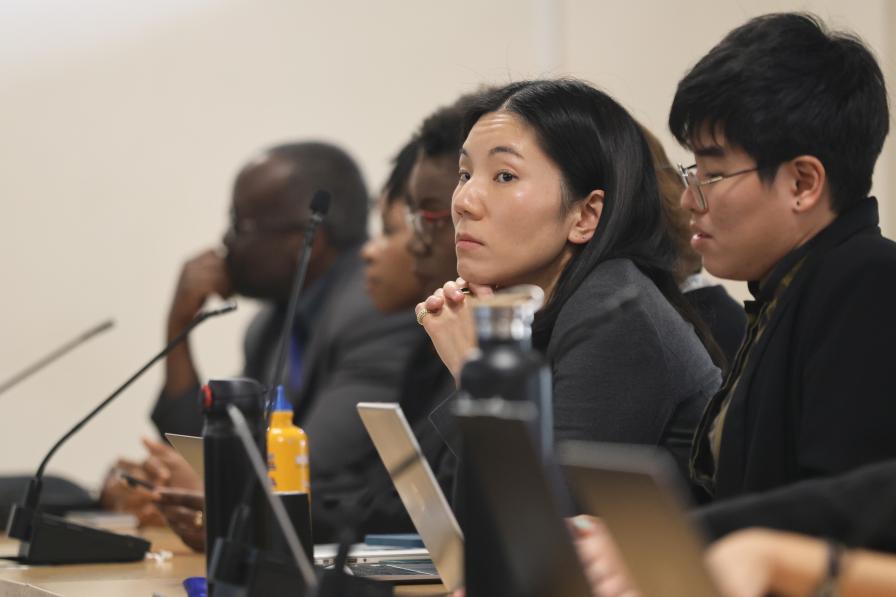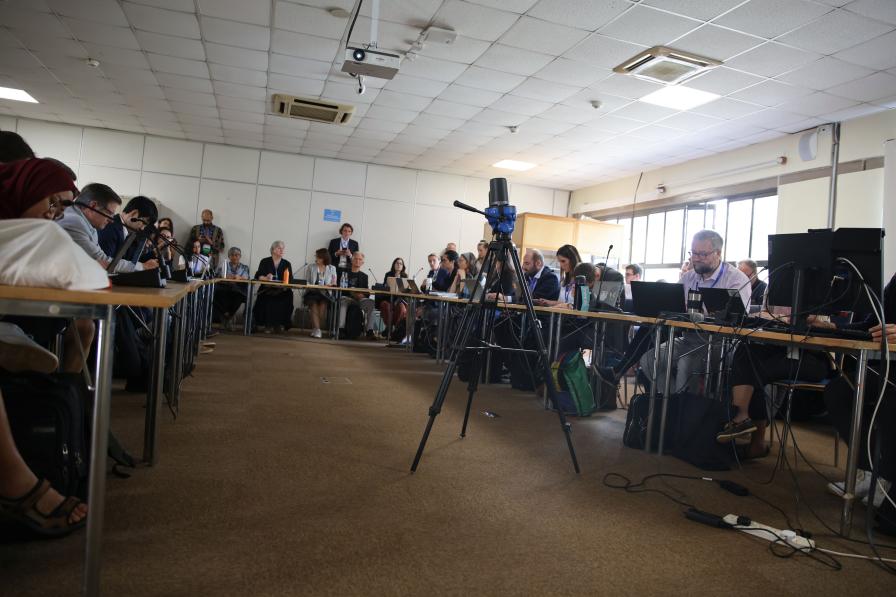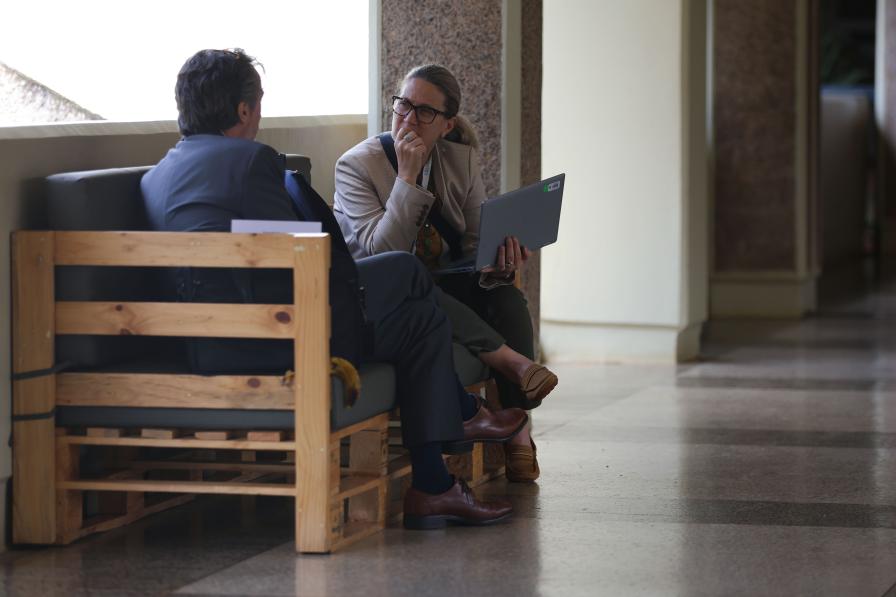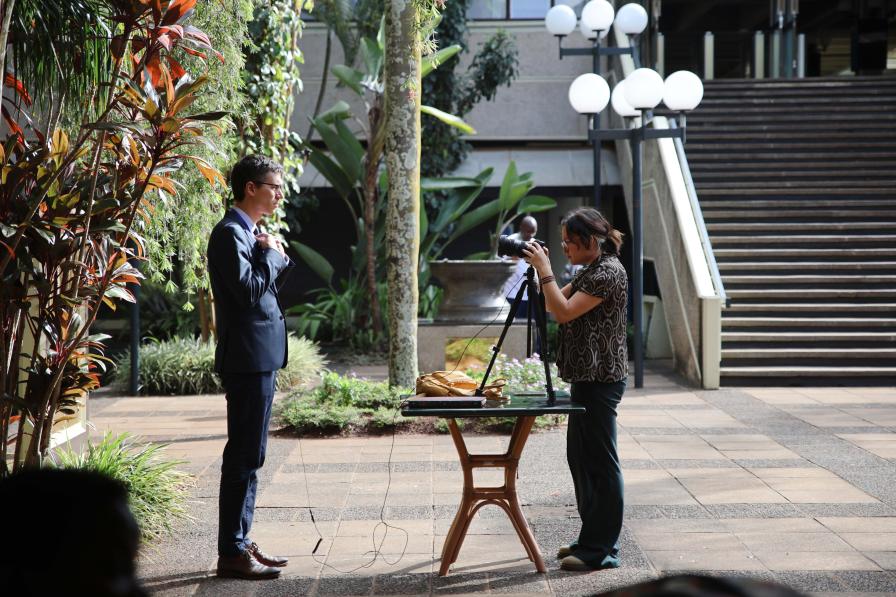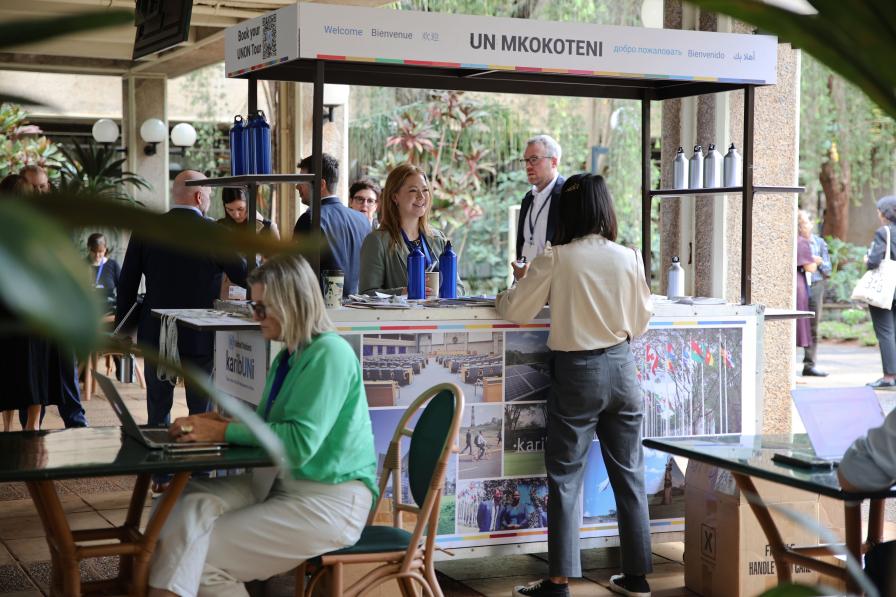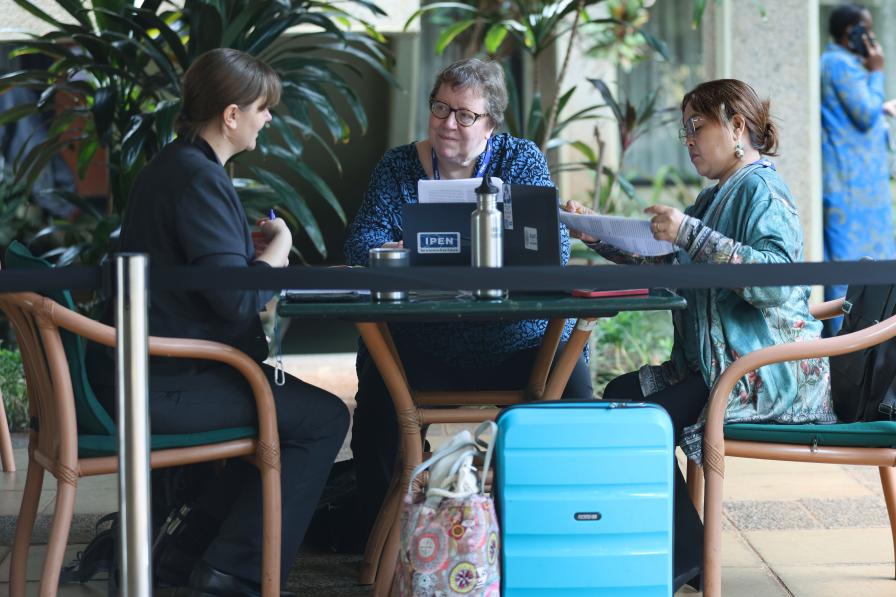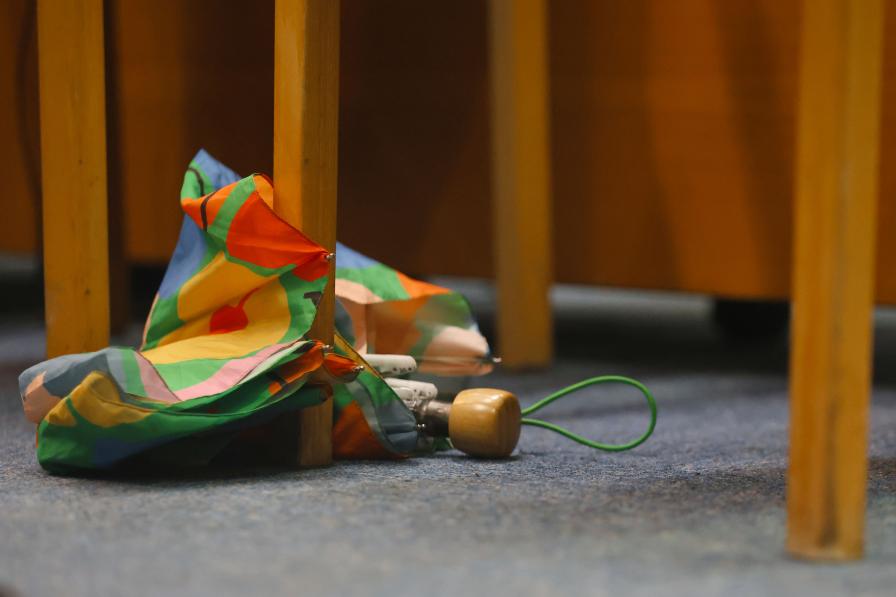During treaty negotiations, contact groups provide a platform for states and stakeholders to candidly discuss their desired outcomes, preferences, and redlines. Discussions in this setting offer a glimpse of possible final outcomes: a window into what countries deem important to their constituents.
Want to dig deeper into today's talks? Read the full Earth Negotiations Bulletin daily report.
On Wednesday, delegates engaged in such talks to further negotiations at the third session of the Intergovernmental Negotiating Committee (INC-3) to develop an international legally binding instrument (ILBI) on plastic pollution, including in the marine environment. They based their discussion on the Zero Draft text of the ILBI and the Synthesis Report of elements not discussed at INC-2, meeting in three contact groups throughout the day and into the evening.
Contact Group 1 addressed substantive obligations contained in the draft text. Co-facilitated by Gwendalyn Kingtaro Sisior (Palau) and Axel Borchmann (Germany), the group considered options related to chemicals and polymers of concern, as well as problematic and avoidable plastic products, including short-lived and single-use plastic products and intentionally added microplastics.
Delegations were divided, with some supporting more ambitious obligations, including phase-out measures; and others preferring more flexibility and fewer burdens on implementing countries.
Contact Group 2 considered matters related to modalities and means of implementation. Co-facilitated by Katherine Lynch (Australia) and Oliver Boachie (Ghana), delegates spent some time in the morning addressing elements related to capacity building, technical assistance, and technology transfer. They engaged in a frank exchange of views about the nature of technology transfer, with some asserting that this transfer should only occur on mutually agreed terms, and others favoring preferential terms.
The group also conducted a first round of discussions on national plans, considering to what extent these should be mandatory. The group finalized a first reading on all the provisions they were mandated to consider, including:
- periodic evaluation of the effectiveness of the ILBI;
- review of chemicals and polymers of concern, microplastics, and problematic and avoidable products;
- international cooperation;
- information exchange;
- awareness raising, education, and research; and
- stakeholder engagement.
Contact Group 3 addressed elements of the Synthesis Report. Co-facilitated by Marine Collignon (France) and Danny Rahdiansyah (Indonesia), the group completed a first round of discussions, addressing their preferences on the preamble, definitions, and scope, with some proposing the inclusion of elements not contained in the Synthesis Report. On the institutional arrangements for the ILBI, delegations widely supported the establishment of one governing body supported by one or more subsidiary bodies. A number of delegations noted that existing multilateral environmental agreements, including the Minamata Convention on Mercury, could be used as a model.
Delegations are set to convene in a stocktaking plenary on Thursday afternoon.
To receive free coverage of global environmental events delivered to your inbox, subscribe to the ENB Update newsletter.
All ENB photos are free to use with attribution. For INC-3, please use: Photo by IISD/ENB | Anastasia Rodopoulou.
Contact Groups
Side Events
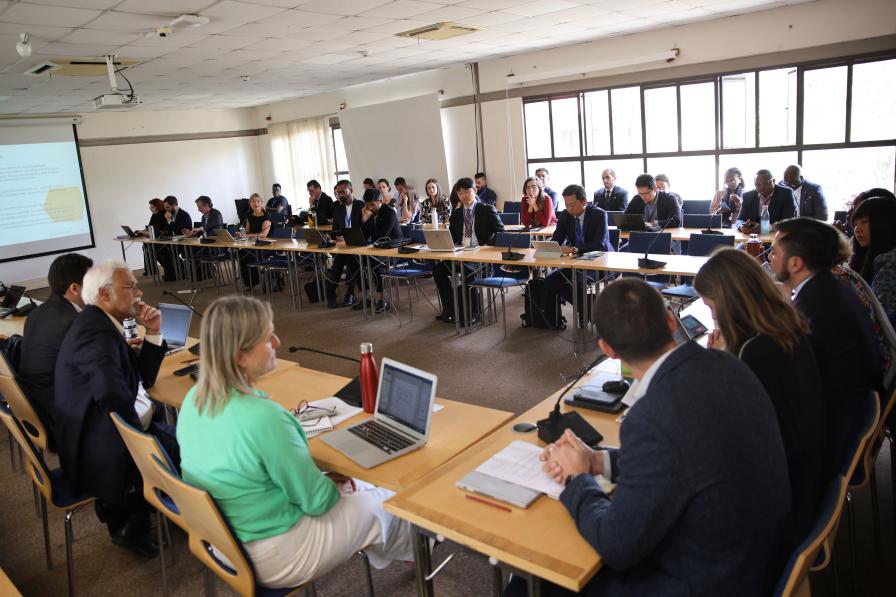
View of the room during the event on "Monitoring the situation and monitoring progress of the future instrument: objectives/targets and their associated baselines, indicators and timelines"
